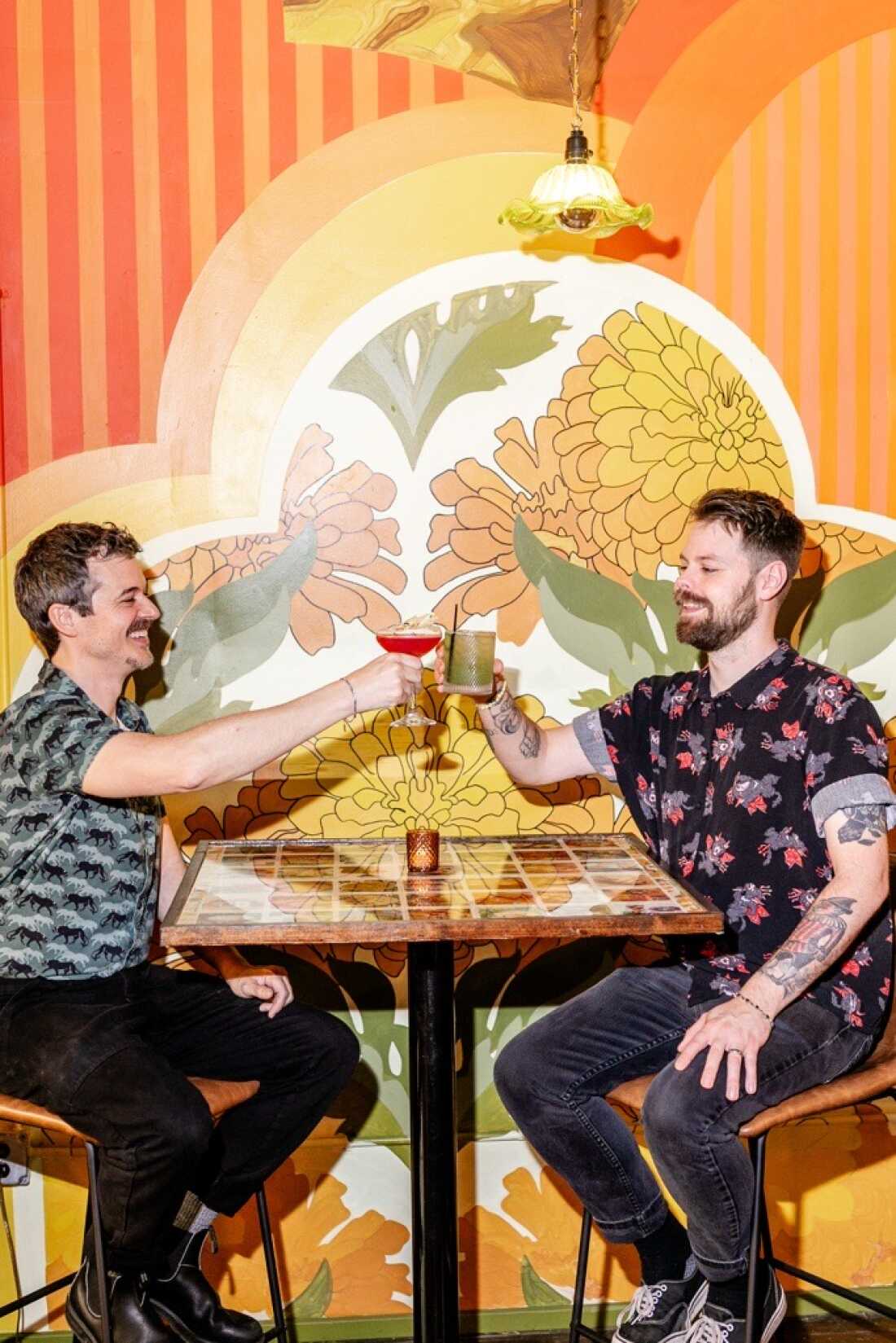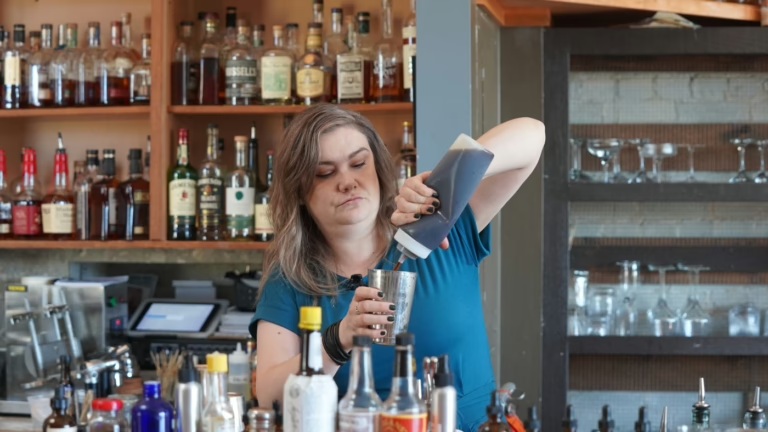Kala Brooks, bar manager at Top of the Monk, a craft cocktail bar in downtown Asheville, hopes fall visitors will revive business.
Stephanie Rogers
hide caption
toggle caption
Stephanie Rogers
ASHEVILLE, N.C. – In September of last year, Brandon Davis celebrated the launch of his dream venture.
His bar, Day Trip, embraced a retro 1970s vibe and was nestled close to Asheville’s French Broad River. Together with his husband Davie, Brandon crafted a cozy atmosphere filled with nostalgic decor and unique antiques. However, their excitement was short-lived; just a month after opening, Hurricane Helene’s floodwaters devastated the venue.
“The entire place was submerged in sewage from ceiling to floor,” Davis shared. “All the vintage items I had painstakingly gathered, the ambiance I built-it was all ruined, covered in filth and mud. It was heartbreaking.”
The destruction extended beyond riverfront businesses. The storm damaged the city’s main water supply, leaving residents without electricity, internet, or cell service for several weeks. Landslides destroyed homes, roads, and vital infrastructure.
“Our first priority wasn’t the bar,” Davis explained. “We were worried about basic necessities-food, water, power-and caring for our four cats and dog.”
Countless residents across western North Carolina faced similar hardships. The community shifted into survival mode, and tourism-which typically peaks in October-came to a standstill. Many businesses halted operations or offered free services, leading to an average loss of $322,000 per small business.
Now, a year later, Asheville’s economy has yet to fully recover. As autumn returns with its vibrant foliage, the local hospitality sector pins its hopes on a resurgence of visitors to sustain them through the colder months.

Brandon Davis and his husband Davie at the new Day Trip bar location after the original was destroyed by Hurricane Helene.
Sean Szitas
hide caption
toggle caption
Sean Szitas
“Many small businesses have pulled together every resource they could find, often accumulating significant debt, just to reopen,” Davis noted. “Our survival depends heavily on tourism bouncing back to help us climb out of this hole.”
Despite the challenges, Davis counts himself fortunate. A fundraising campaign raised $200,000, enabling him to clear most of the debt on his original venue and relocate to a safer, elevated site.
On a typical Sunday night, the vibrant new bar buzzes with patrons enjoying Pabst Blue Ribbons and inventive cocktails like the “Everything in its Right Place,” a refreshing cucumber mezcal blend.
Though the atmosphere is hopeful, economic uncertainty lingers. Since Helene, demand for Asheville vacation rentals has declined by roughly 20%.
“Every month brings anxiety when it’s time to cover rent, utilities, and other expenses,” Davis admitted.
Kala Brooks, who manages the craft cocktail lounge Top of the Monk, describes the period as a pivotal moment for the hospitality field.
“Deciding whether to stay or leave has been an immense challenge for many,” she said. “We’ve lost a lot of talented, experienced staff.”
Before the floods, Brooks oversaw a team of over 20 at Top of the Monk and its downstairs brewery, Thirsty Monk, a beloved Asheville institution. Unfortunately, the brewery had to close after its production facility was destroyed. Now, Brooks manages just four employees.
“It’s frustrating because as a manager, I want to steer the business toward success,” she explained. “But I can’t physically bring customers through the door.”
Top of the Monk, a craft cocktail bar in downtown Asheville, pictured before an evening shift. The brewery closed after Hurricane Helene.
Stephanie Roger
hide caption
toggle caption
Stephanie Roger
Thousands of hospitality workers in Asheville face similar struggles, earning less than before the storm while grappling with housing insecurity, insurance complications, and mental health issues.
Jay Slusher, a server at Golden Hour in Asheville’s River Arts District, contemplated leaving the city after Helene.
“There were moments this past winter when I felt completely adrift,” Slusher recalled. “‘How will I survive here? Will the jobs return? Will tourists come back?'”
Still, he remains optimistic about the future. His time unemployed gave him a renewed appreciation for his passion.
“I’ve realized how much I love hospitality and meeting new people,” he said. “Before, I took it for granted.”
Meanwhile, Brooks channels her uncertainty into creativity, crafting new seasonal cocktails to welcome guests.
“It’s been incredibly tough,” she admitted. “But it’s also a time of renewal and transformation.”

















